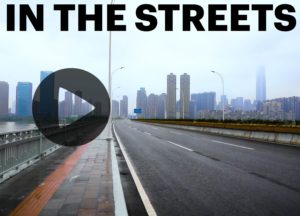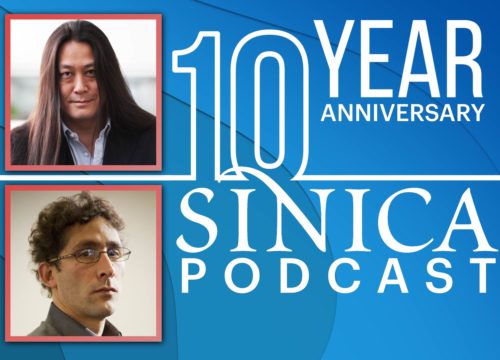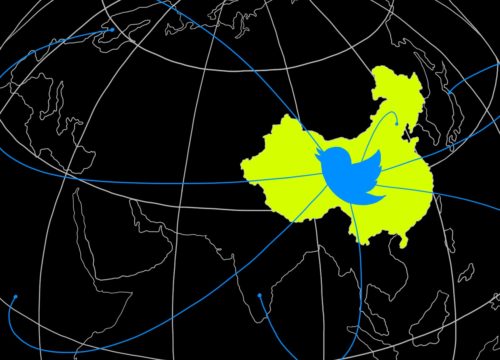Legendary Chinese novelist Jin Yong passes away at 94
Louis Cha, China’s famed wuxia (martial arts) novelist who wrote under the name Jīn Yōng 金庸 — and was one of the most recognized writers in modern Chinese history — passed away in Hong Kong on Tuesday at the age of 94 after battling a long-term illness.
Born in 1924 in Zhejiang Province, Cha moved to Hong Kong in 1948 and started his career as a journalist. Subsequently, he co-founded the Hong Kong daily newspaper Ming Pao 明报 in 1959 and served as its first editor-in-chief. The paper now has four North American branches, in Toronto, Vancouver, San Francisco, and New York.
Cha’s works have sold more than 300 million copies worldwide. Many of his novels were adapted into films, TV shows, and, more recently, video games and online games. He is best known for his martial arts fiction series The Condor Trilogy, which includes The Legend of the Condor Heroes (1957), The Return of the Condor Heroes (1959), and The Heaven Sword and the Dragon Saber (1961).
Cha’s works are largely set in the world of the jianghu, a society of martial arts advocates who travel across China to teach martial arts skills while upholding a strict code of honor. In addition, unlike traditional martial arts novels, where characters are secondary to plot, Cha’s works are character-driven, with plots determined by character arcs. As a result, even though the novels depict a surreal world, the characters seem real and down to earth. Many Chinese grew up either reading Cha’s novels or watching TV series inspired by them.
Cha published his first novel at age 15 in 1939, but was expelled from school two years later for distributing satirical content via newspaper. He was enrolled in the Central School of Governance in Chongqing in 1944 but was expelled again after voicing disapproval over the behavior of some of the school’s Kuomintang 国民党 members.
Cha later graduated from Soochow University 东吴大学 in Shanghai. He began his life as a journalist at Takungpao 大公报 in Shanghai, and was assigned to Hong Kong in 1948.
The death of his father during the Cultural Revolution may have been a big turning point in his career. As Straits Times reports:
“After the communists swept into power in 1949, his father was deemed an oppressive landowner and executed. Following the news of the death, Cha ‘wept for three days and three nights in Hong Kong, and was sad for half a year, but he didn’t hate the army that killed his father,’ he wrote in Yueyun. ‘Because thousands, tens of thousands, of landowners had been killed in all of China; this was a big upheaval.’
“Consequently, because ‘he always felt the weak should not be oppressed,’ he began writing wuxia novels, he said.”
In addition to his achievements in novel writing, Cha was involved in current affairs through Ming Pao. In 1964, he voiced opposition against China’s decision to build nuclear weapons amid the nation’s poverty and starvation. Cha also took a firm stance against the Cultural Revolution. Often facing threats and attacks from radical left-wing Hong Kong activists, Cha received special protection from the British Hong Kong government until the 1970s.
Cha was also an advocate of democracy and freedom. He quit the drafting committee of Hong Kong’s Basic Law in 1989 in support of the student protesters. Due to Cha’s stance against the Chinese government, his novels and publications were banned in mainland China from the 1950s to the 1970s.
Cha’s death shocked many of his readers in China. Former Chinese Wall Street Journal editor-in chief Yuan Li 袁莉 said on Twitter, “Everyone, I mean everyone, on my WeChat timeline has something to say about Jin Yong.”
Yuan explained that a full generation of Chinese might be inspired by the work of Jin Yong: “We all read and reread his novels in our teens, twenties, thirties, until today. His novels took us to a magical place where justice always prevails.
“But for people who read him in the 1980s and 1990s, Jin Yong meant a lot more because we had limited access to the outside world. He opened our eyes.”
The South China Morning Post called Cha “the most influential Chinese martial arts novelist of the 20th century.” BBC Chinese praised him for being one of the few influential figure in multiple fields, from literature to media, politics to business.
Chinese internet users expressed condolences on the social media platform Weibo and cited some of Cha’s famous quotes to commemorate his work.

“Hunting the white stag in a flurry of snow. Happily penning the tale of the divine couple amidst the green feathered birds. Jin Yong was the soul of Chinese wuxia fiction. May he rest in peace,” one user commented.

“Wuxia fiction was once considered less elegant. However, Jin Yong’s works are not only elegant but also popular. His works created so many ‘heroic gurus.’ However, he was the real guru!”

“Life is like a fight. Then, you leave quietly. —Jin Yong.”
With additional reporting by Chauncey Jung.





